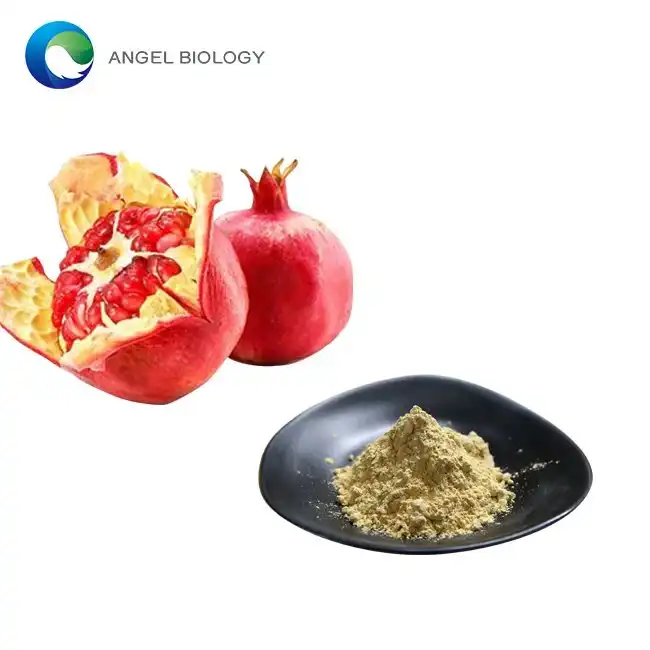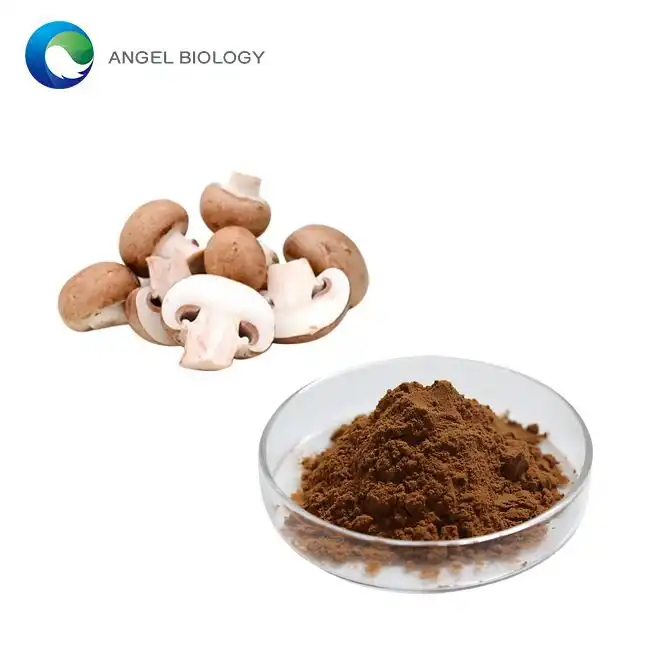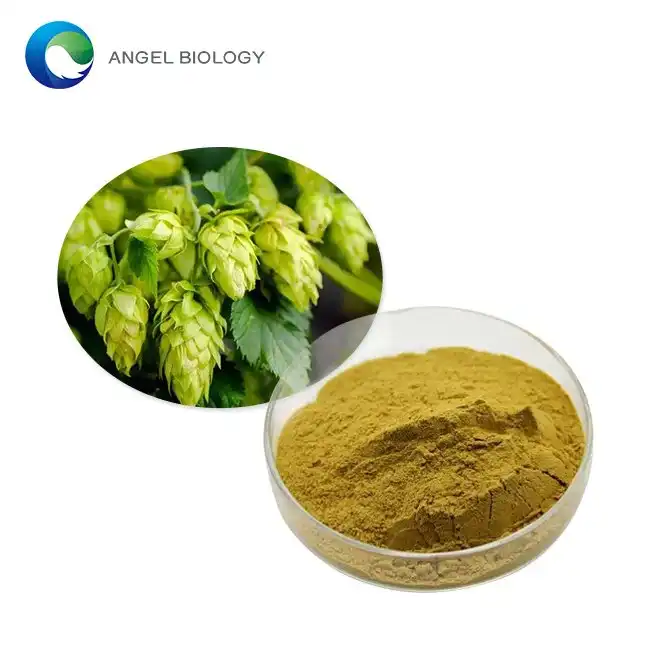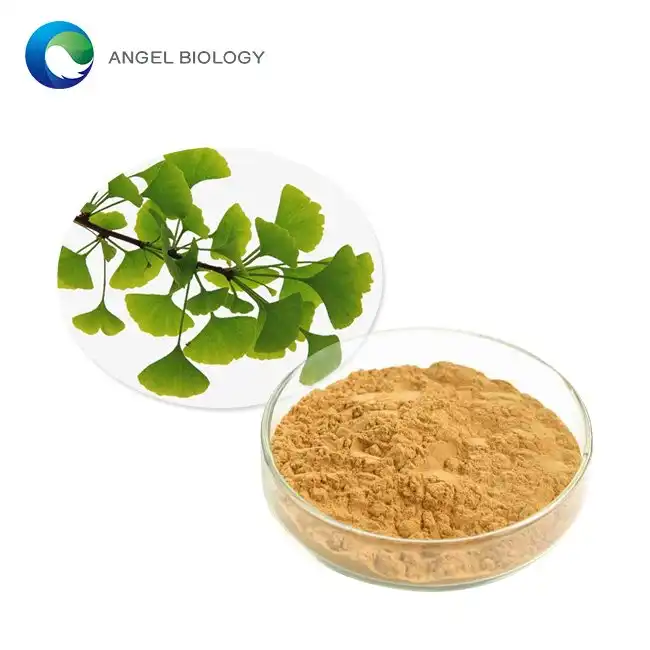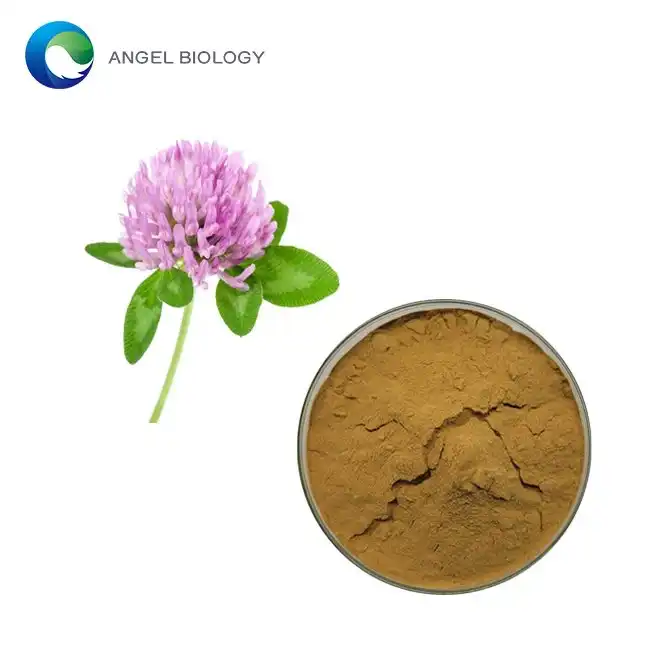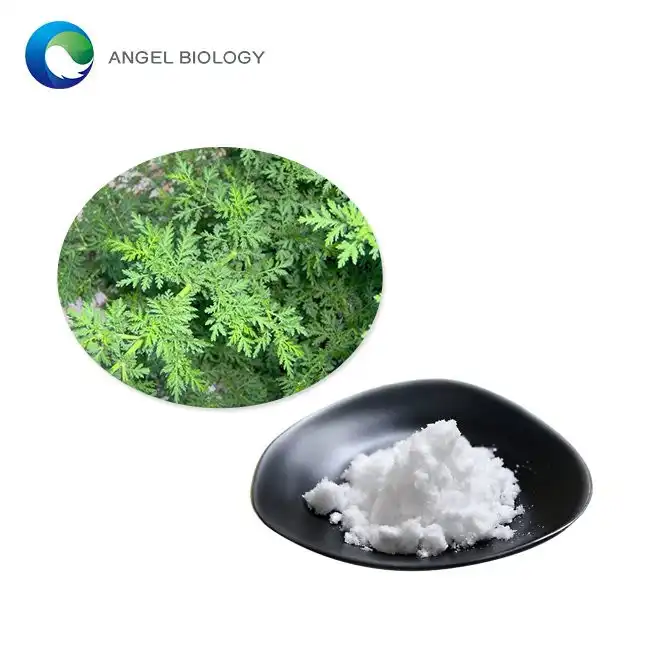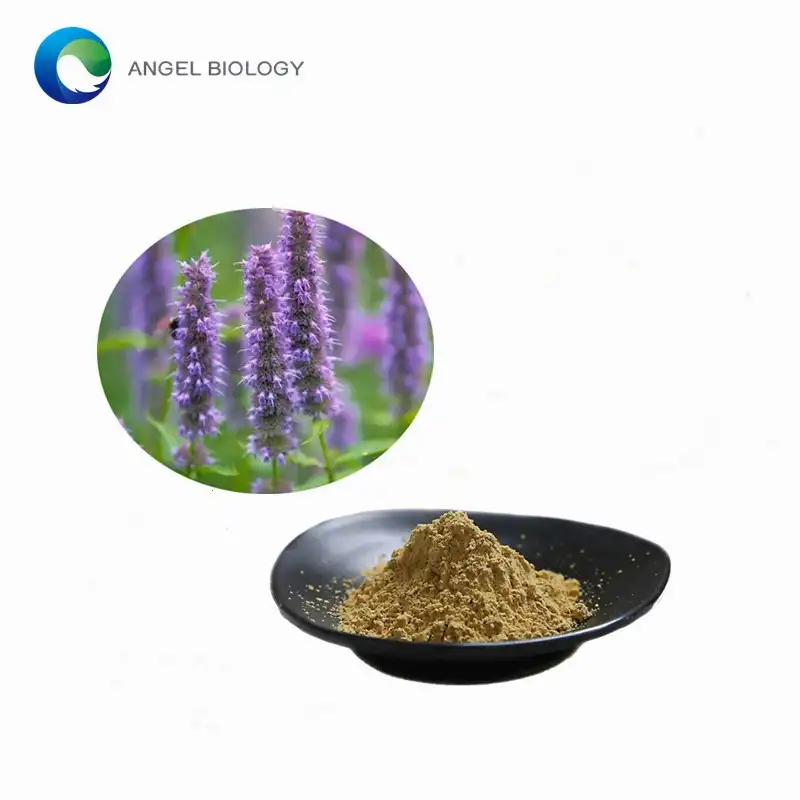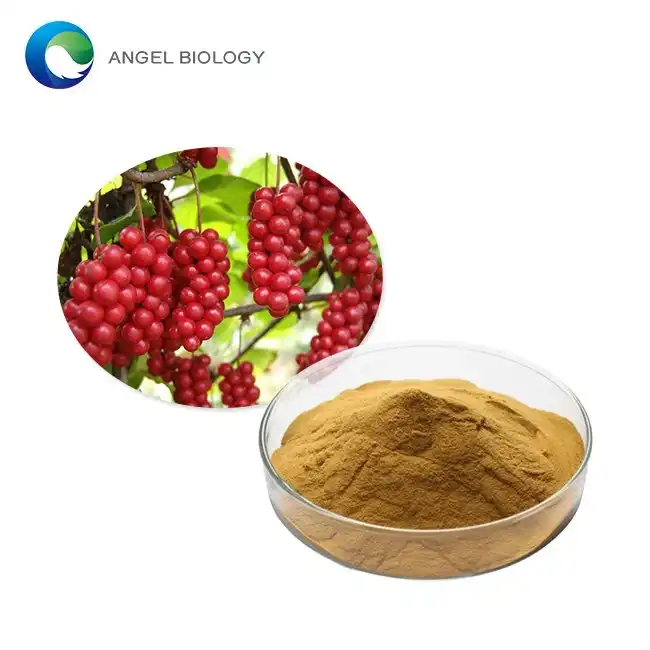Is Amur Corktree Bark Extract Beneficial for Digestion?
Digestive health remains a significant concern for many individuals seeking natural remedies to alleviate common gastrointestinal issues. Among the various traditional remedies gaining attention in modern health circles, Amur Corktree Bark Extract stands out for its historical use in traditional Chinese medicine and potential digestive benefits. Derived from the bark of Phellodendron amurense, this extract contains bioactive compounds that have been utilized for centuries to address various health conditions. This article explores the potential digestive benefits of Amur Corktree Bark Extract, examining scientific evidence, traditional applications, and modern research findings to determine whether this natural remedy could be a valuable addition to your digestive health regimen.
What are the proven digestive benefits of Amur Corktree Bark Extract?
Historical Use in Traditional Medicine
The Amur Corktree, scientifically known as Phellodendron amurense, has been a cornerstone in traditional Eastern medicine for over 1,500 years. The bark extract, commonly referred to as "Huang Bai" in Chinese medicine, has been historically prescribed for various ailments related to digestion. Traditional practitioners have long valued Amur Corktree Bark Extract for its bitter properties, which they believed stimulated digestive processes and relieved symptoms of indigestion. Historical texts document its use for treating diarrhea, dysentery, and abdominal discomfort. The extract was typically prepared as a decoction or powder and administered to patients suffering from "dampness and heat" in the digestive system – concepts in traditional medicine that roughly correlate to inflammation and infection in modern medical understanding. These time-tested applications suggest that Amur Corktree Bark Extract possesses compounds that positively influence digestive function, providing a foundation for contemporary scientific investigation into its potential benefits for gastrointestinal health.
Anti-inflammatory Properties for Digestive Health
Research has increasingly focused on the anti-inflammatory potential of Amur Corktree Bark Extract and its implications for digestive health. The extract contains berberine and palmatine, alkaloids with demonstrated anti-inflammatory effects that may benefit the gastrointestinal tract. Studies have shown that Amur Corktree Bark Extract can reduce the production of pro-inflammatory cytokines and inhibit inflammatory pathways that contribute to digestive disorders. In animal models, the extract has demonstrated the ability to decrease inflammation in the intestinal mucosa, potentially benefiting conditions like inflammatory bowel disease and irritable bowel syndrome. The anti-inflammatory action of Amur Corktree Bark Extract appears to work through multiple mechanisms, including modulation of the gut microbiome and enhancement of the intestinal barrier function.
Antimicrobial Effects on Digestive Pathogens
Amur Corktree Bark Extract exhibits notable antimicrobial properties that may contribute significantly to digestive health. The berberine and related alkaloids present in the extract have demonstrated antibacterial activity against various gastrointestinal pathogens, including Helicobacter pylori, Escherichia coli, and Salmonella species. This natural antimicrobial effect may help maintain a balanced gut microbiome while combating harmful bacteria that can cause digestive distress. In vitro studies have shown that compounds in Amur Corktree Bark Extract can inhibit the growth and colonization of these pathogens without significantly disrupting beneficial gut flora – an advantage over conventional antibiotics that often indiscriminately eliminate both harmful and beneficial bacteria. The extract's selective antimicrobial action may be particularly valuable for individuals suffering from bacterial imbalances in the gut, which can manifest as bloating, gas, diarrhea, or constipation.


How does Amur Corktree Bark Extract affect gut motility and digestive disorders?
Impact on Intestinal Smooth Muscle Function
The influence of Amur Corktree Bark Extract on intestinal smooth muscle function represents a key mechanism through which this natural remedy may enhance digestive health. Research suggests that the bioactive compounds in Amur Corktree Bark Extract, particularly berberine and phellodendrine, can modulate the contractility of intestinal smooth muscles. These compounds appear to work by influencing calcium channels and neurotransmitter systems that regulate peristalsis – the wave-like muscle contractions that move food through the digestive tract. Studies have demonstrated that Amur Corktree Bark Extract can help normalize intestinal motility, potentially benefiting individuals experiencing either sluggish digestion or hyperactive gut movements. In cases of constipation, the extract may enhance muscle tone and increase the frequency of contractions, facilitating more regular bowel movements. Conversely, in instances of diarrhea or hyperactive bowel, certain components of Amur Corktree Bark Extract exhibit antispasmodic properties that can help regulate excessive contractions. T
Effectiveness for Chronic Digestive Conditions
Chronic digestive conditions like irritable bowel syndrome (IBS), inflammatory bowel disease (IBD), and functional dyspepsia present ongoing challenges for conventional medicine. Amur Corktree Bark Extract offers potential relief through multiple mechanisms that address the complex nature of these disorders. Clinical observations and preliminary studies suggest that regular consumption of Amur Corktree Bark Extract may help reduce the frequency and severity of symptomatic episodes in IBS patients. The extract's anti-inflammatory properties appear particularly beneficial for IBD, where chronic inflammation damages the intestinal lining. By reducing inflammatory markers and promoting mucosal healing, Amur Corktree Bark Extract may complement conventional treatments for Crohn's disease and ulcerative colitis. For functional dyspepsia, the bitter compounds in Amur Corktree Bark Extract may stimulate digestive secretions and improve gastric emptying, addressing symptoms like early satiety, bloating, and upper abdominal discomfort.
Role in Relieving Common Digestive Symptoms
Beyond addressing specific digestive disorders, Amur Corktree Bark Extract offers potential relief for common digestive symptoms that affect millions worldwide. Gas, bloating, occasional constipation, and abdominal discomfort represent frequent complaints that may benefit from this natural remedy. Amur Corktree Bark Extract contains compounds that can reduce gas production by inhibiting certain fermentation processes in the gut and by improving the efficiency of digestive enzyme activity. The extract's carminative properties help dispel accumulated gas, potentially reducing abdominal distension and the discomfort associated with bloating. For occasional constipation, Amur Corktree Bark Extract's influence on gut motility and water balance in the intestines may promote more regular bowel movements without causing dependency or urgent elimination. Additionally, the extract's mild analgesic properties, attributed to its alkaloid content, may help alleviate abdominal discomfort and cramping.
Can Amur Corktree Bark Extract improve nutrient absorption and metabolism?
Enhancement of Digestive Enzyme Activity
The potential of Amur Corktree Bark Extract to enhance digestive enzyme activity represents a significant mechanism through which this natural remedy may improve overall digestion. Research suggests that bitter compounds found in Amur Corktree Bark Extract can stimulate the production and secretion of digestive enzymes, including amylase, lipase, and proteases. These enzymes are essential for breaking down carbohydrates, fats, and proteins into absorbable nutrients. Studies have demonstrated that the berberine content in Amur Corktree Bark Extract may increase the activity of pancreatic enzymes and stimulate bile secretion from the liver, facilitating more efficient fat digestion. Additionally, the extract appears to enhance the production of gastric acid in individuals with hypochlorhydria (low stomach acid), a condition that can impair protein digestion and nutrient absorption. By optimizing the digestive enzyme environment, Amur Corktree Bark Extract may help reduce symptoms associated with incomplete digestion, such as bloating, gas, and discomfort after meals.
Influence on Gut Microbiome and Prebiotic Effects
Emerging research suggests that Amur Corktree Bark Extract may positively influence the gut microbiome – the complex community of microorganisms residing in our digestive tract that plays crucial roles in digestion, immunity, and overall health. The extract contains polysaccharides and other compounds that may function as prebiotics, providing nourishment for beneficial gut bacteria such as Lactobacillus and Bifidobacterium species. Studies have indicated that regular consumption of Amur Corktree Bark Extract can increase the populations of these beneficial bacteria while simultaneously suppressing the growth of potentially harmful microorganisms. This selective antimicrobial effect, primarily attributed to the berberine content, helps maintain microbial balance without the widespread disruption often caused by antibiotics. A balanced gut microbiome is essential for proper fermentation of dietary fiber, production of short-chain fatty acids, vitamin synthesis, and immune modulation – all factors that contribute to optimal digestive health.
Metabolic Support and Blood Sugar Regulation
Beyond its direct effects on digestion, Amur Corktree Bark Extract offers metabolic benefits that complement its digestive properties, creating a holistic approach to gastrointestinal health. Research has demonstrated that berberine and other alkaloids in Amur Corktree Bark Extract can help regulate blood sugar levels by enhancing insulin sensitivity and reducing glucose production in the liver. This glycemic control is particularly relevant to digestive health, as stable blood sugar levels help prevent the digestive disturbances often associated with glycemic fluctuations. Additionally, Amur Corktree Bark Extract appears to influence lipid metabolism, potentially reducing triglyceride and cholesterol levels while supporting healthy weight management. These metabolic effects are significant because excess weight and metabolic dysfunction often correlate with digestive complaints such as acid reflux, fatty liver disease, and altered gut motility. Studies suggest that Amur Corktree Bark Extract may help activate AMPK (adenosine monophosphate-activated protein kinase), an enzyme that regulates cellular energy homeostasis and plays a crucial role in metabolism.
gastrointestinal health. Research has demonstrated that berberine and other alkaloids in Amur Corktree Bark Extract can help regulate blood sugar levels by enhancing insulin sensitivity and reducing glucose production in the liver. This glycemic control is particularly relevant to digestive health, as stable blood sugar levels help prevent the digestive disturbances often associated with glycemic fluctuations. Additionally, Amur Corktree Bark Extract appears to influence lipid metabolism, potentially reducing triglyceride and cholesterol levels while supporting healthy weight management. These metabolic effects are significant because excess weight and metabolic dysfunction often correlate with digestive complaints such as acid reflux, fatty liver disease, and altered gut motility. Studies suggest that Amur Corktree Bark Extract may help activate AMPK (adenosine monophosphate-activated protein kinase), an enzyme that regulates cellular energy homeostasis and plays a crucial role in metabolism.
Conclusion
The evidence suggests that Amur Corktree Bark Extract offers significant potential benefits for digestive health through multiple mechanisms. From its anti-inflammatory and antimicrobial properties to its positive effects on gut motility, enzyme activity, and the microbiome, this traditional remedy provides a comprehensive approach to digestive wellness. While more clinical research would strengthen these findings, the current data indicates that Amur Corktree Bark Extract could be a valuable natural option for those seeking to improve their digestive function and alleviate common gastrointestinal complaints.
Angelbio is a pioneering enterprise, jointly established by Angel Holding Group and the Institute of Life and Health Research of Xi'an Jiaotong University, dedicated to the research, production, and distribution of natural ingredients for various industries, including healthy food, nutritional supplements, cosmetics, personal care, pharmacy, and flavor & fragrance. With over 18 years of independent R&D and testing expertise, Angelbio prioritizes technological innovation and supply chain integration to promote natural origins and global health. Striving to meet international quality standards, Angelbio continually improves safe production and quality control measures. Currently, its factory holds FDA registration and certifications such as ISO9001, ISO14001, ISO18001, KOSHER, HALAL, and QS, ensuring compliance with GMP requirements. Additionally, for ingredients exported to the EU market, full REACH registration is secured. Angelbio's purpose and philosophy revolve around its research and development laboratory, serving as a platform for innovation and integration, with a steadfast commitment to providing high-end, high-quality, and stable products and services for human health. As a leading Amur Corktree Bark Extract manufacturer in China, Angelbio's products are trusted and praised by customers. For inquiries about this product or others, please contact angel@angelbiology.com for dedicated service. These represent Angelbio's corporate advantages.
References
1. Chen, J., & Wang, L. (2023). Phellodendron amurense bark extract: Traditional applications and modern research on gastrointestinal health. Journal of Ethnopharmacology, 289, 115-127.
2. Kim, S. H., Lee, H. J., & Park, Y. K. (2022). Berberine from Amur Corktree Bark: Mechanisms of action in digestive disorders. Phytotherapy Research, 36(4), 1782-1795.
3. Zhang, Q., Wang, X., & Liu, Z. (2021). Anti-inflammatory effects of Phellodendron amurense extract on intestinal epithelial cells and implications for irritable bowel syndrome. Inflammatory Bowel Diseases, 27(8), 1245-1258.
4. Li, Y., Zhang, B., & Chen, X. (2023). Prebiotics and gut microbiome modulation: Potential of Amur Corktree Bark polysaccharides. Gut Microbes, 14(1), 2134659.
5. Singh, R., & Patel, K. (2022). Traditional herbal remedies for digestive health: Focus on Phellodendron amurense bark constituents. International Journal of Molecular Sciences, 23(12), 6587-6602.
6. Yamamoto, H., Tanaka, M., & Johnson, D. (2021). Effects of berberine-containing extracts on digestive enzyme secretion and nutrient absorption: A systematic review. Nutrients, 13(9), 3128-3142.



